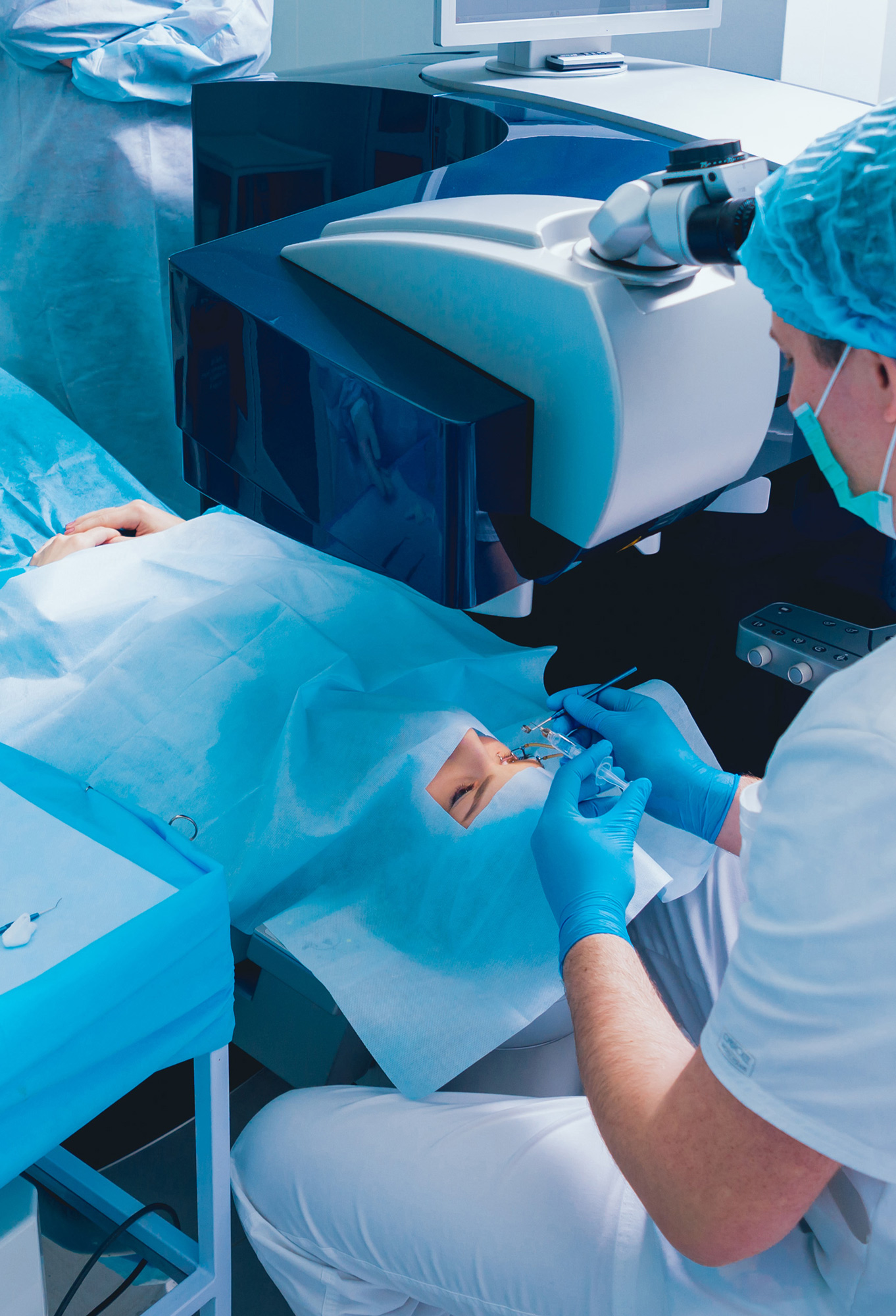
While cataract surgery is an irreversible procedure, there may be some rare instances when a further operation is necessary. So-called, secondary cataracts, a displaced lens, or—rarely—the insertion of a new lens are reasons for further care.
The following looks at each of these in more detail and discusses the pros and cons of further cataract treatments.
The surgical procedure to remove cataracts involves a small incision being made in the eye to allow the surgeon to access the lens capsule. A further incision is made in this capsule and a laser is used to break down the diseased lens. This is then suctioned out and the new intraocular lens (IOL) is placed with the capsule. The incisions are then sealed without the use of stitches.
The surgery is carried out either by traditional methods or the more advanced laser cataract surgery.
In most cases, no further treatment is needed. However, there are some rarer reasons why an additional procedure might need to be carried out.
You might have heard the, somewhat incorrect, term—secondary cataract. This is actually a condition where a small amount of protein begins to clump on the posterior lens capsule that the IOL is attached to. It’s not the formation of another cataract and is easily treated by a process called YAG laser. This takes minutes and is easily carried out by your ophthalmologist. The results are fast and permanent.
There are some rare occasions where an IOL might shift from its original position. It’s estimated that anywhere between 0.05% and 3% of people who’ve had cataract surgery might experience this. The displacement is usually spontaneous (although it can happen if you sustain an injury to the eye).
The prevalence of a displaced IOL is higher in people who:
A displaced IOL might happen soon after surgery or many years later. It’s important to continue to have regular eye checks, even years after your cataract surgery.
Needing to change the lens that’s been implanted is extremely rare. However, even with the most intricate of calculations, it can still be possible that the IOL doesn’t provide adequate results—usually near-vision—or other issues are noticed.
If this happens, then the lens can be changed for a more suitable one. As with all surgical procedures, there is an element of risk. Whilst cataract surgery has a very (very!) low-risk factor, there are times that the operation needs a tweak or even that consideration must be taken to remove the IOL completely.
The most important takeaway is that cataract surgery is best approached as a continuing partnership between you and your eye surgeon. They will continue to monitor your eye health for the rest of your life, and you shouldn’t hesitate to get in immediate contact if you experience any sudden vision changes or loss of vision at any time after the procedure.
As alarming as the above may sound, it’s vital to stress that the vast majority of cataract procedures go without incident. The operation prevents seriously deteriorating eyesight or even blindness. Millions are carried out around the world every year, thanks to technology and the skill of the surgeons who perform them.
Modern Cataract Surgery is a dedicated cataract clinic that’s part of the renowned West Boca Eye Center. Lead clinician, Dr. Brent Bellotte, heads a world-renowned surgical facility that specializes in cutting-edge cataract treatments.
Whether you’re concerned about an already-performed cataract operation, have been diagnosed with the condition, or have been told you have a particularly challenging situation, there’s no better place to ensure you get the very best of care.
Visit (website link) today and call to speak to a member of our friendly team.

